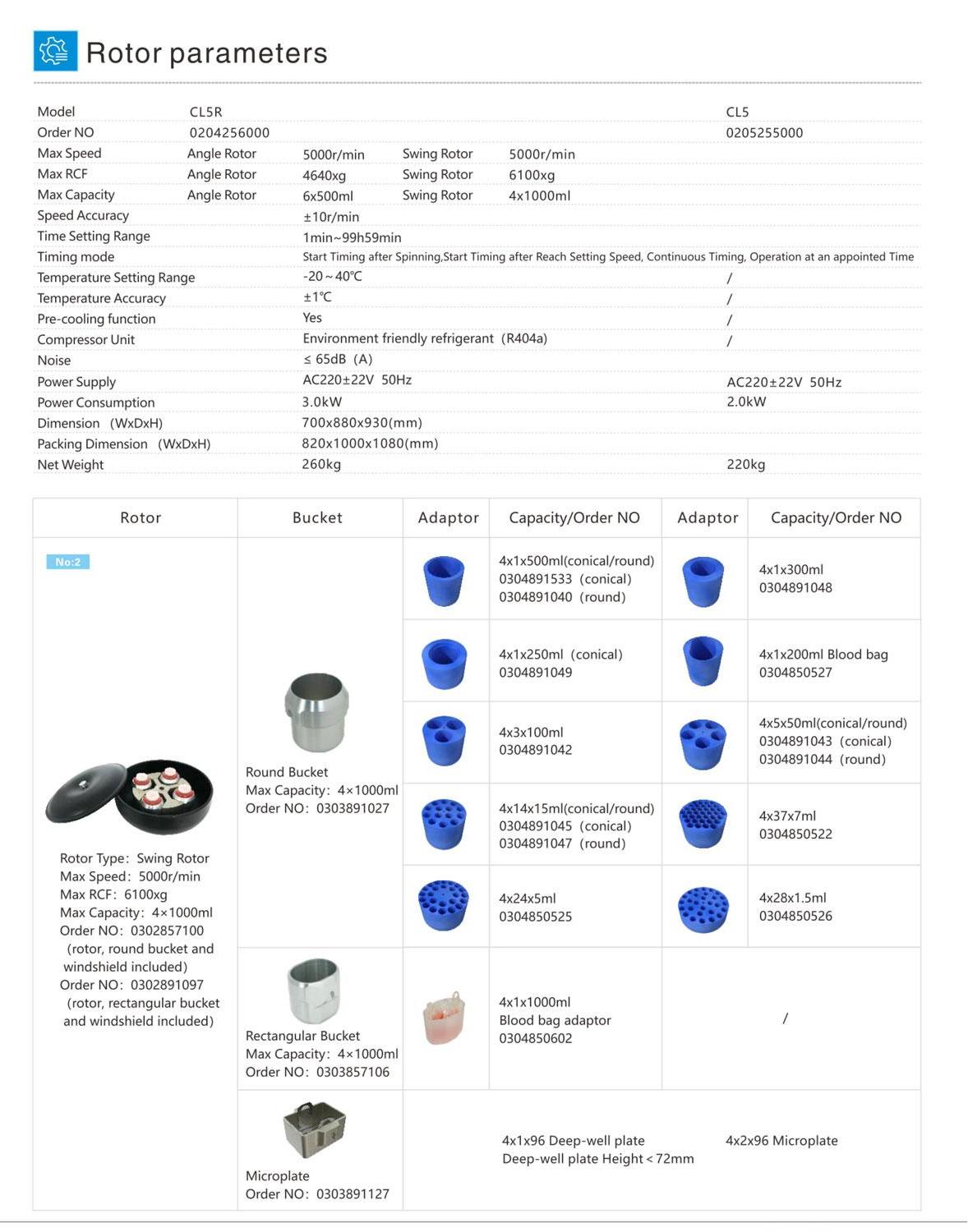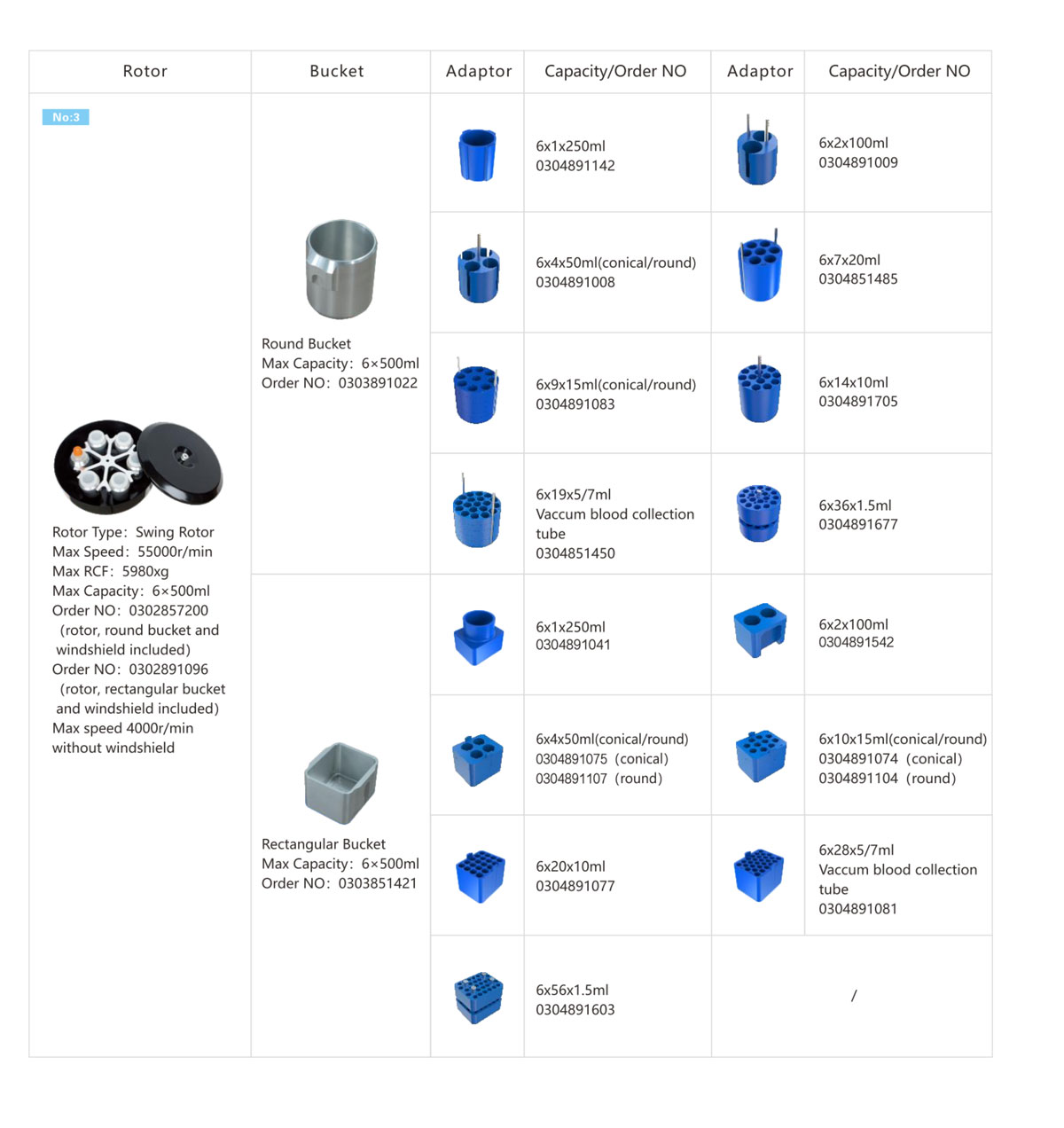










· High-Capacity Processing: Accommodates up to 4x1000mL rotors, designed for large-volume sample separation, ideal for high-throughput laboratories.
· Efficient Cooling (Refrigerated Model): Precision temperature control from -20°C to 40°C ensures sample integrity during temperature-sensitive procedures.
· Etallwit Brand Quality: Trusted performance and durability with robust design and reliable operation for high-demand environments.
· Advanced Safety Features: Includes non-contact imbalance detection, overspeed protection, and motor overheating prevention for operator and sample safety.
· User-Friendly Interface: Intuitive touch screen with real-time display of operational parameters for easy setup and monitoring.
| Brand | Etallwit |
|---|---|
| Max Speed | 5000 RPM |
| Max RCF | 6100 xg (Swing Rotor) |
| Max Capacity | 4x1000mL |
| Temperature Range | -20°C to 40°C |
| Noise Level | ≤65dB(A) |
| Power Supply | AC 220V±22V 50Hz |
| Power Consumption | 3.0kW |
| Dimensions (W×D×H) | 700x880x930mm |
| Net Weight | 260kg |
| Warranty | 1 year |
Rotor Options
Swing Rotor
o Max Capacity: 4x1000mL
o Max Speed: 5000 RPM
o Max RCF: 6100 xg
Angle Rotor
o Max Capacity: 6x500mL
o Max Speed: 5000 RPM
o Max RCF: 4640 xg


· Blood Component Separation: Efficiently separates blood bags or other biological samples for clinical diagnostics and blood banking.
· Biochemistry & Molecular Biology: Supports high-volume sample preparations for DNA/RNA extraction, protein purification, and other critical processes.
· Pharmaceutical & Biotechnology Research: Essential for high-demand labs requiring temperature stability and consistent, high-capacity processing.
Refrigerated Centrifuge FAQs
Q1: What is refrigerated centrifugation?
A: Refrigerated centrifugation is a process where samples are spun at controlled low temperatures. This helps maintain sample integrity, particularly for temperature-sensitive materials like proteins, enzymes, and cell cultures, by preventing heat buildup during high-speed spinning.
Q2: Why is a refrigerated centrifuge necessary?
A: Refrigerated centrifuges are essential for preserving the stability of sensitive samples that could degrade or become denatured at higher temperatures. By keeping the samples cold, it reduces the risk of unwanted chemical reactions and ensures more accurate results in laboratory procedures.
Q3: How does a refrigerated centrifuge differ from an ambient centrifuge?
A: The primary difference is that a refrigerated centrifuge maintains a specific low temperature during operation, ideal for heat-sensitive applications. In contrast, an ambient (non-refrigerated) centrifuge operates at room temperature, suitable for less temperature-sensitive samples.
Sign up to get the latest product announcement and offer.
WhatsApp us